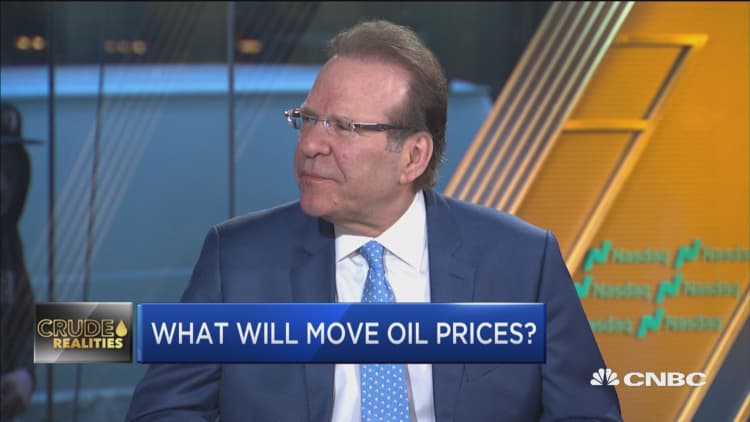Oil prices pared early gains on Tuesday, as supply concerns in Norway and Libya were tempered by the United States' indication that it would consider requests for waivers from Iranian oil sanctions.
Benchmark Brent oil futures were up 84 cents at $78.91 per barrel by 2:28 p.m. ET, after hitting a session peak of $79.51. U.S. light crude futures ended Tuesday's session up 26 cents at $74.11, backing off the day's high of $74.70.
Earlier in the session, prices had been within striking distance of the four-year highs. But prices retreated after U.S. Secretary of State Mike Pompeo said that the United States would consider requests from some countries to be exempted from sanctions on Iranian oil that it will put in effect in November
"That basically took the wind out of the sails from the market," said Phil Flynn, analyst at Price Futures Group in Chicago.
"But it isn't unlike anything that they've said before. But it all depends on which countries they're talking about. Is it big buyers of Iranian crude? Is it India?...Is it temporary waivers?"

The U.S. State Department sent oil prices soaring two weeks ago after a senior official said the agency is pushing oil buyers to cut their imports from Iran to zero by Nov. 4.
On Tuesday, Pompeo told Sky News Arabia, "There will be a handful of countries that come to the United States and ask for relief from that. We’ll consider it."
Earlier on Tuesday, Barclays said the Trump administration may find it "politically unpalatable" to force China and India to wind down all Iranian imports by November, just before Americans vote in mid-term elections.
"We assume that the government will take this more pragmatic approach, but another scenario could emerge in which with increasing trade war tensions with the US, the Chinese government facilitates purchasing more Iranian crude," wrote Michael Cohen, head of energy markets research at Barclays.
Still, Brent was buoyed by a strike by hundreds of workers on Norwegian offshore oil and gas rigs, leading to the shutdown of one Shell-operated oilfield.
Also bullish to prices was plummeting production in Libya, where output has halved to 527,000 barrels per day in five months.
"Working in the opposite direction of the Norwegian oil workers strike and the geopolitical situation" was the update on the Syncrude oil sands facility, said Yawger at Mizuho.

On Monday, Suncor Energy said its 360,000 bpd Syncrude facility would resume some production in July, earlier than expected, following an outage last month that disrupted total output and sent U.S. prices higher.
The updated timeline has muted U.S. price gains and widened the difference between the two benchmarks, said Yawger.
U.S. prices were also under some pressure ahead of inventory reports, said Bill Baruch, president of Blue Line Futures in Chicago.
The American Petroleum Institute is scheduled to release its inventory data for last week at 4:30 p.m. EDT on Tuesday.
Meanwhile, the Organization of the Petroleum Exporting Countries, led by Saudi Arabia, and allies including Russia are increasing output to offset global production losses.
But there is growing concern that if Saudi Arabia offsets Iranian losses, it will use up global spare capacity and leave markets vulnerable to further or unexpected production declines.
— CNBC's Tom DiChristopher contributed to this report.

